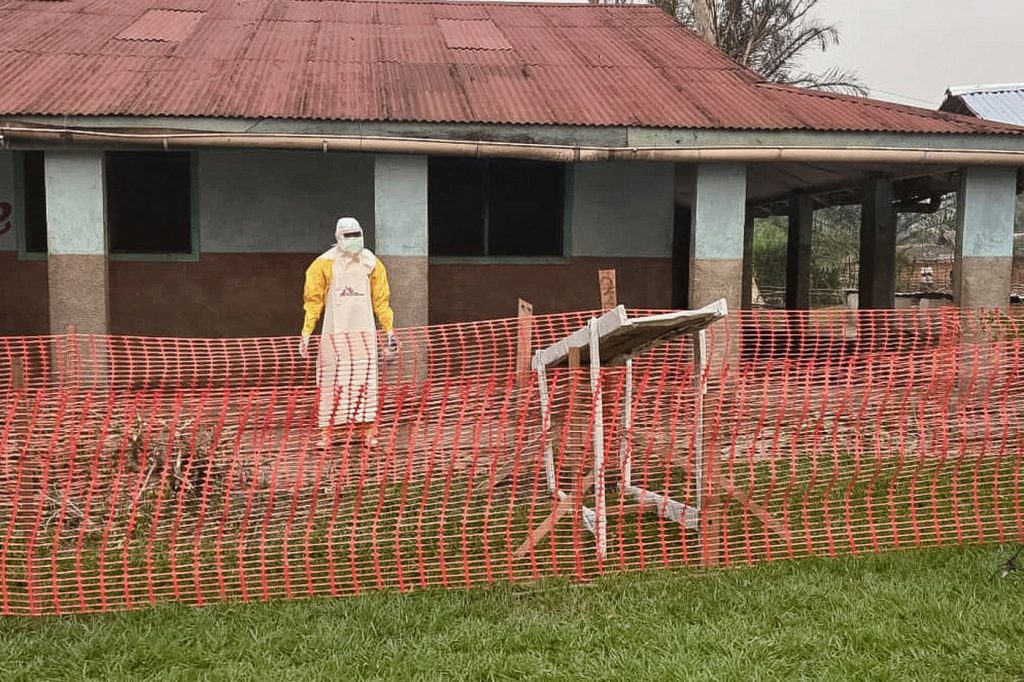GOMA, Congo (AP) – A deadly Ebola outbreak in southern Congo has raised urgent alarms as health authorities warn of insufficient funding and resources to effectively combat the crisis. The World Health Organization (WHO) reported on Wednesday that, since the outbreak was declared by Congolese authorities on September 4, there have been 57 cases and 35 fatalities, resulting in a fatality rate exceeding 61%.
This outbreak marks the first instance in 18 years that Kasai province, located over 1,000 kilometers (620 miles) from the capital Kinshasa, has been affected by Ebola. The region is known for its underdeveloped infrastructure and limited access to health services, compounding the challenges in managing the outbreak.
According to Susan Nzisa Mbalu, head of communications for the International Federation of Red Cross and Red Crescent Societies (IFRC) in Africa, there is an urgent need for partners and donors to step forward to support efforts to manage the crisis. The IFRC has appealed for 20 million Swiss francs ($25 million) to assist in containing the outbreak and aims to provide urgent aid to approximately 965,000 people. They have pointed out that health facilities are overwhelmed, lacking basic resources such as clean water and protective equipment.
The only treatment center in the Bulape health zone, which is the epicenter of the outbreak, is currently functioning at 119% of its capacity. Health officials are particularly apprehensive about the ramifications of U.S. funding cuts, given the historical support the U.S. has provided for previous Ebola outbreaks in Congo. For instance, during a 2021 outbreak, the U.S. Agency for International Development (USAID) contributed up to $11.5 million for the response efforts across the continent.
As of now, the IFRC has been able to allocate 1.75 million Swiss francs ($2.2 million) in emergency funds to tackle the ongoing situation. However, Mathias Mossoko, the Ebola Response Coordinator in Bulape, noted that while the U.S. government has provided some minor support, details were not specified.
WHO spokesperson Tarik Jasarevic mentioned that the only current funding for the outbreak response includes a $2 million emergency fund and approximately $2.3 million from the United Kingdom, Germany, and the Gavi vaccine alliance. This funding is starkly below the WHO's projected requirement of around $20 million for the next three months to effectively manage the outbreak.
Health officials have warned that without immediate financial support, operational gaps will persist, jeopardizing containment efforts and putting vulnerable communities at further risk. The Congolese authorities have outlined a national response plan estimated to cost $78 million.
Jean Paul Mbantshi, the chief medical officer for the Bulape health zone, emphasized the enormous resources required for treating Ebola and expressed a dire need for ambulances to transport patients from remote areas before they become highly contagious. There is also a critical need for protective equipment, medicine, and additional vaccines.
As of September 21, WHO reported that only 1,740 individuals in three health zones—Bulape, Bulambae, and Mweka—had been vaccinated, despite the Bulape zone housing a population of over 212,000 according to 2020 UN figures. Vaccination efforts have been hampered by logistical challenges, including inadequate storage facilities in Bulape, which have forced officials to transport vaccines in small batches and caused delays.
Amitié Bukidi, chief medical officer of the Mweka health zone, noted that the response is still nascent, with the majority of Ebola cases occurring outside formal health centers. He stressed the necessity of expanding community outreach, especially to educate farmers in hard-to-reach locations about Ebola. He also highlighted the need for motorcycles to access these remote areas more effectively.










